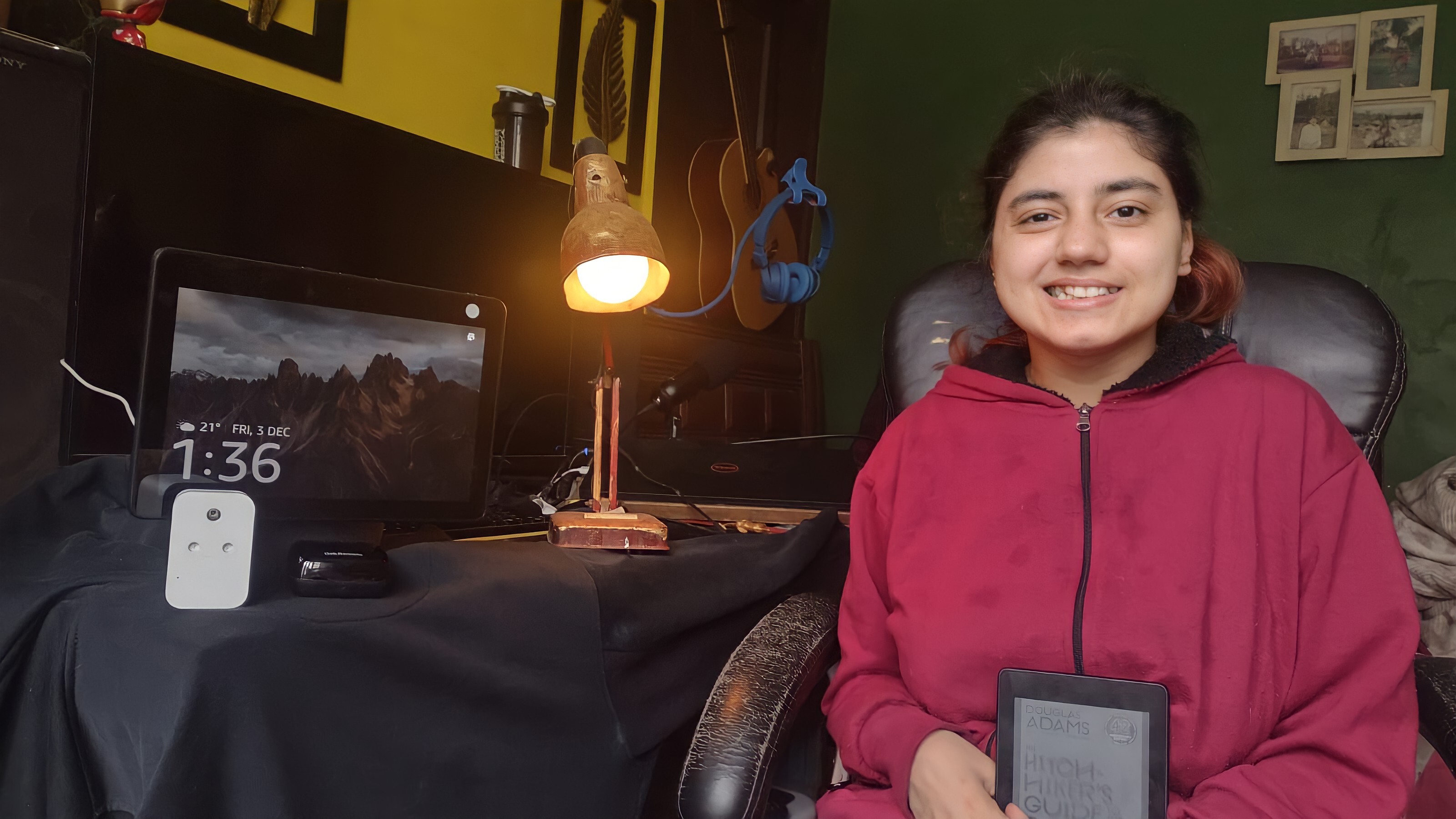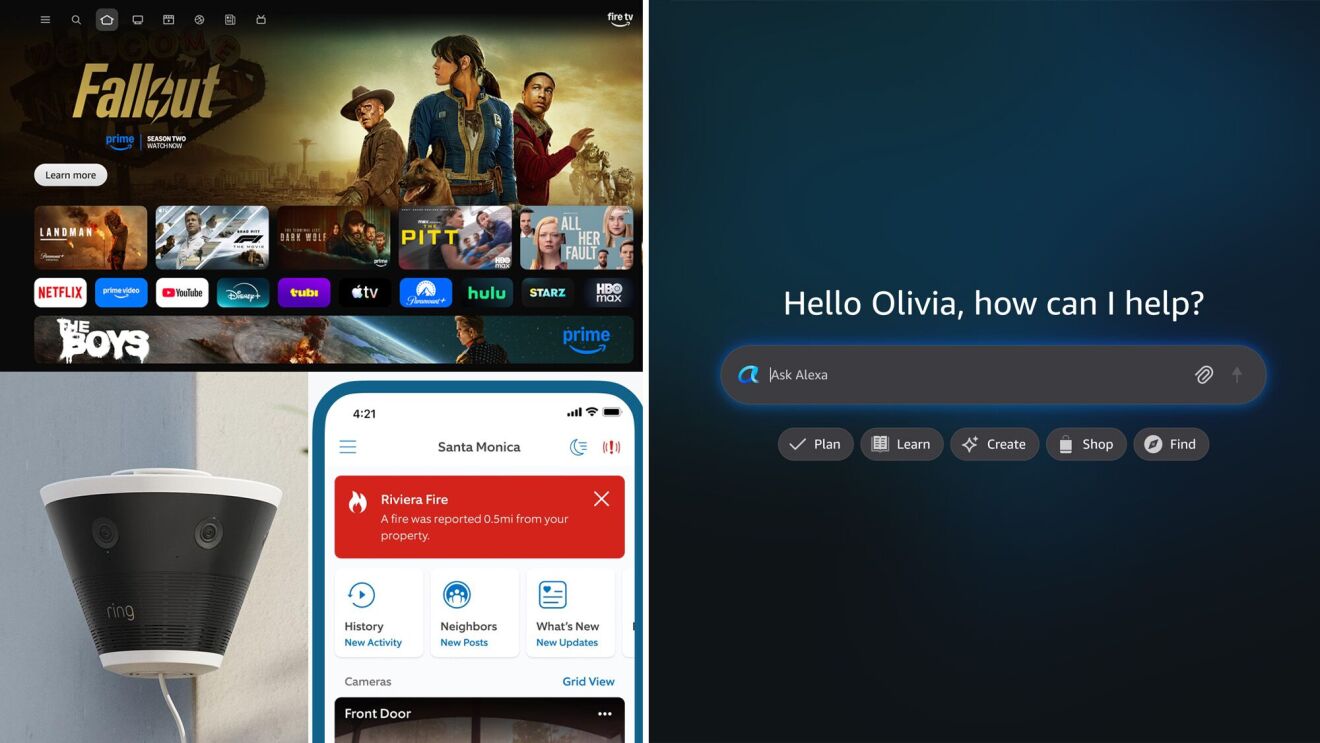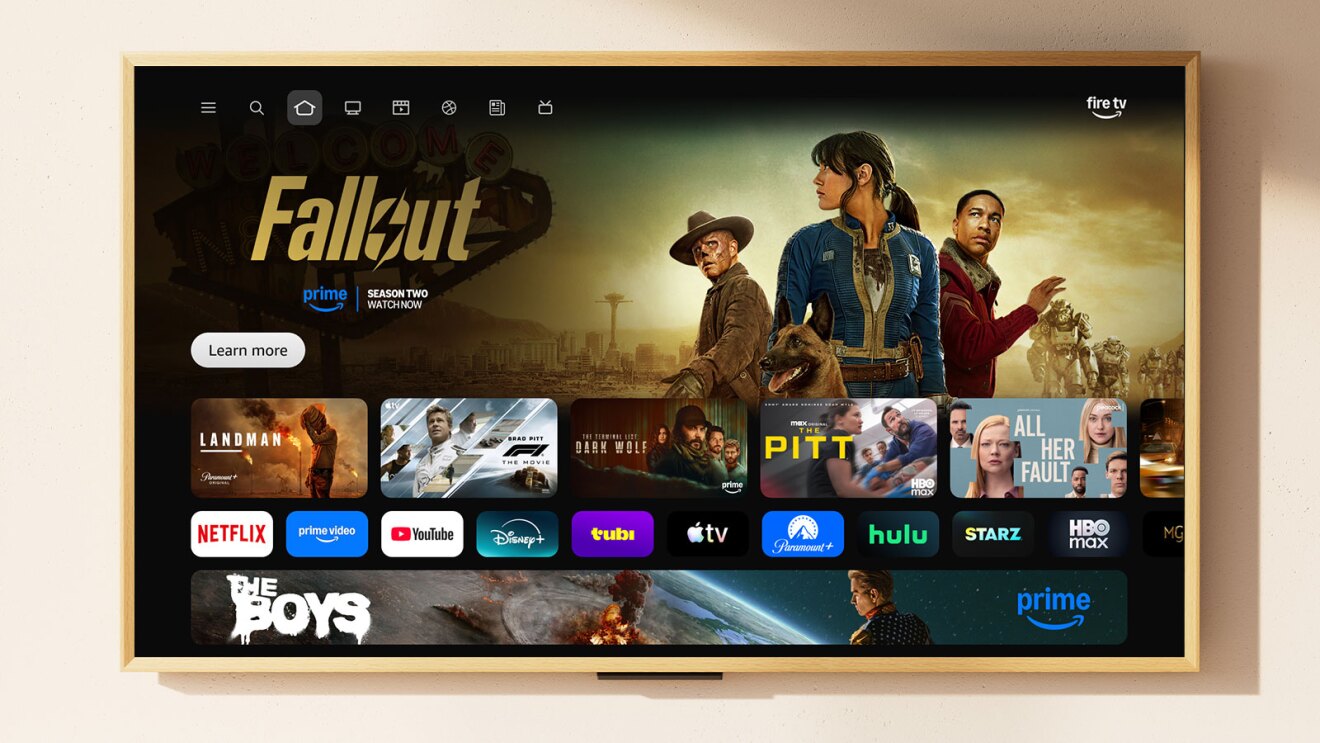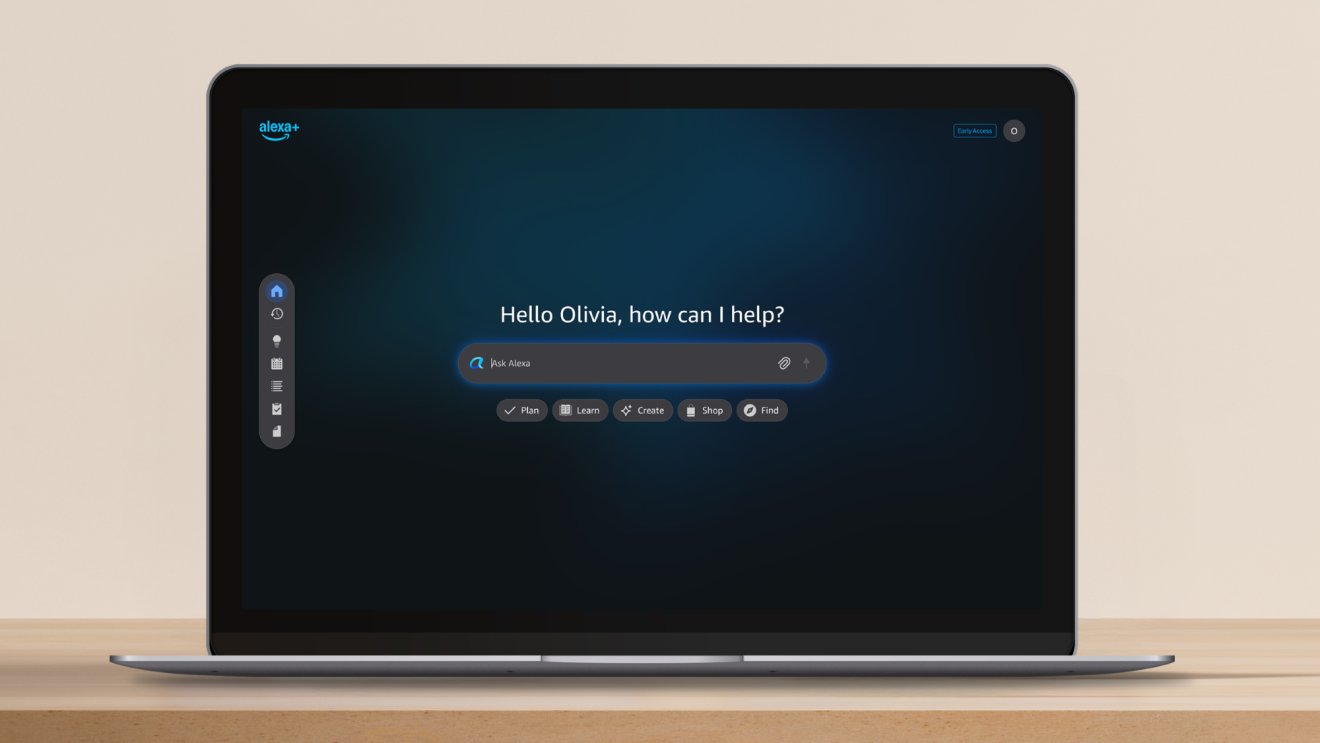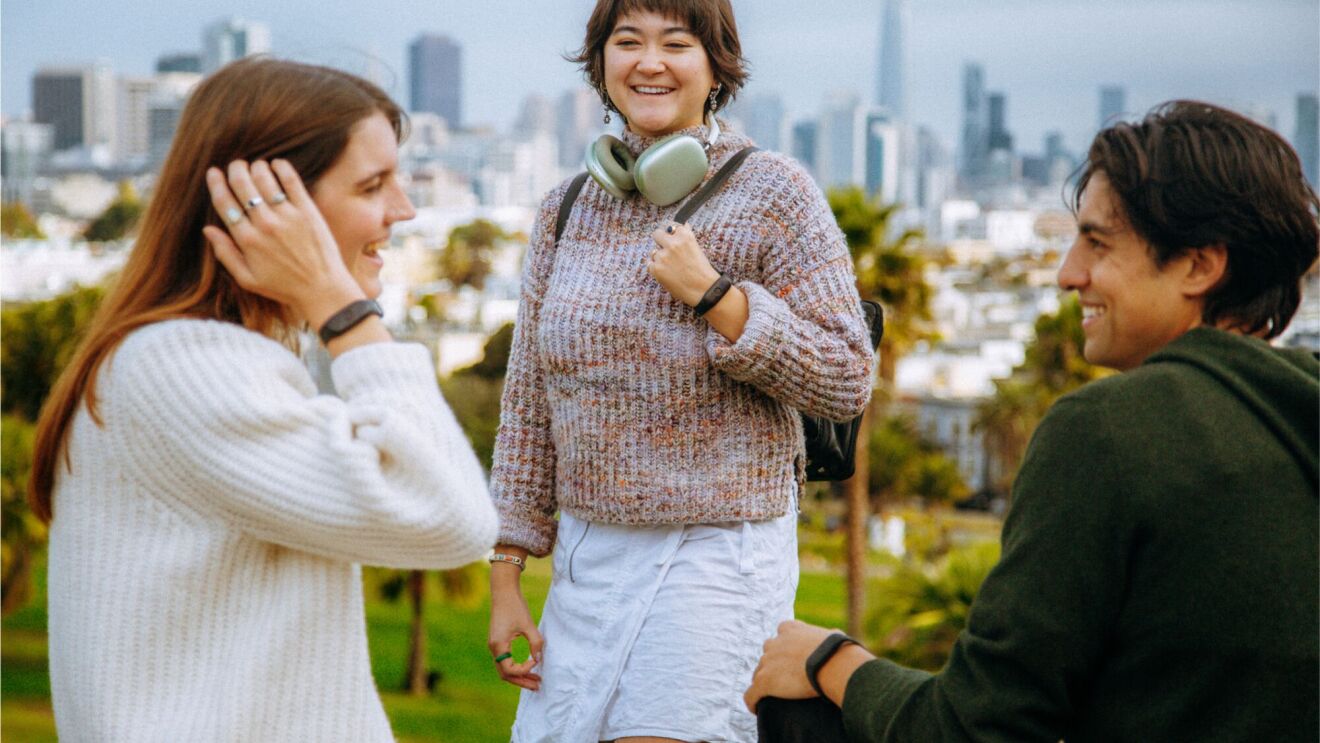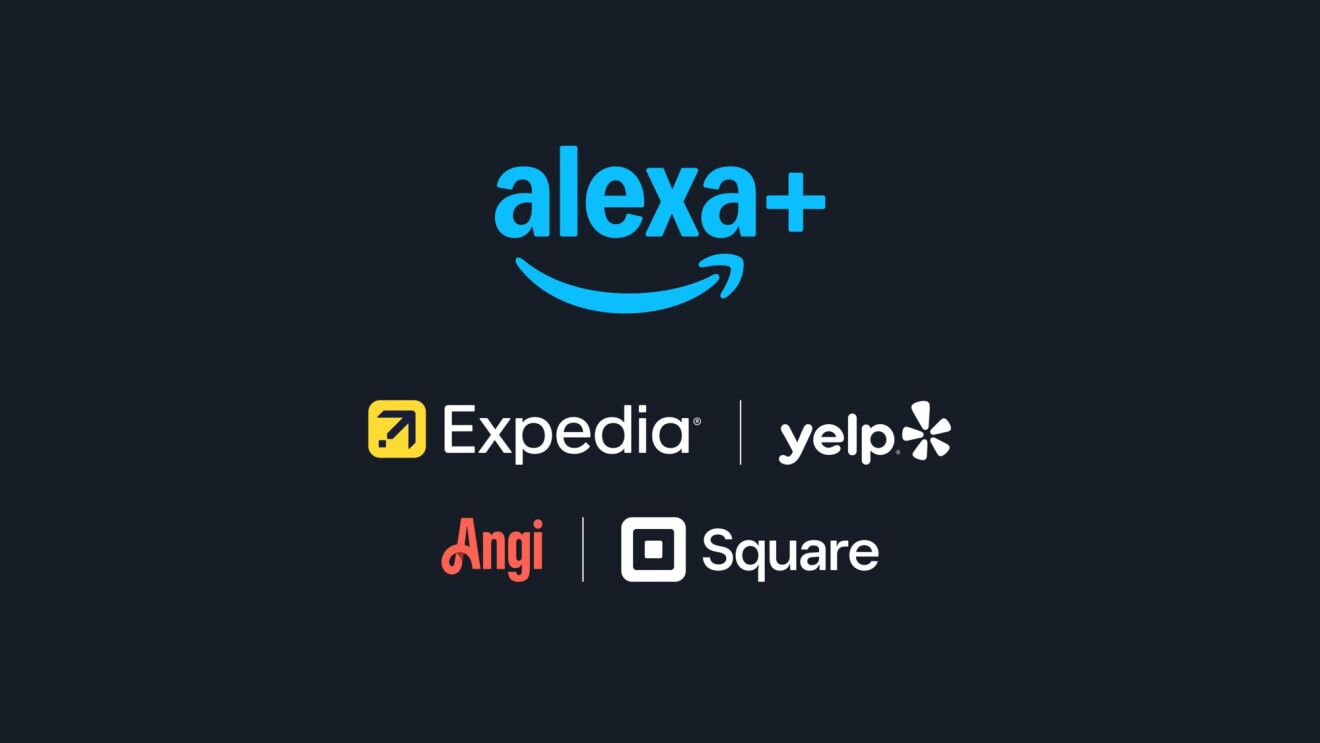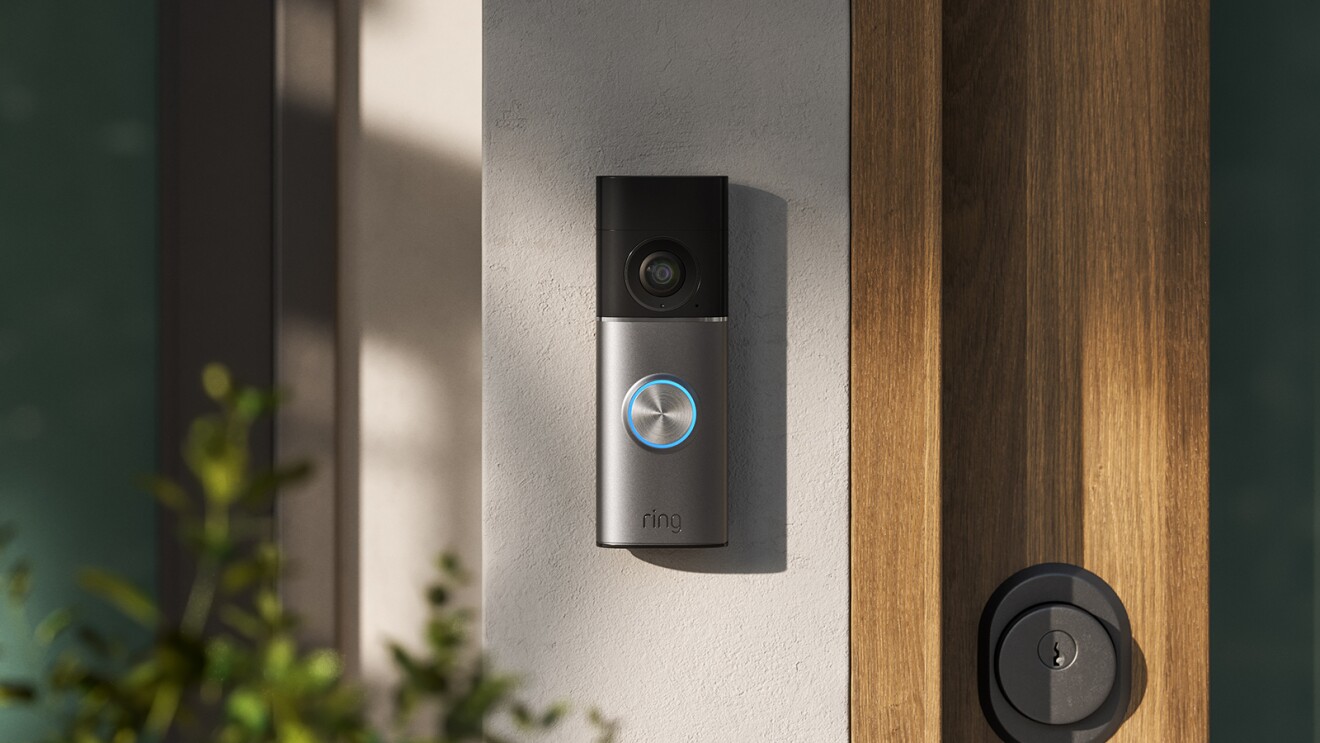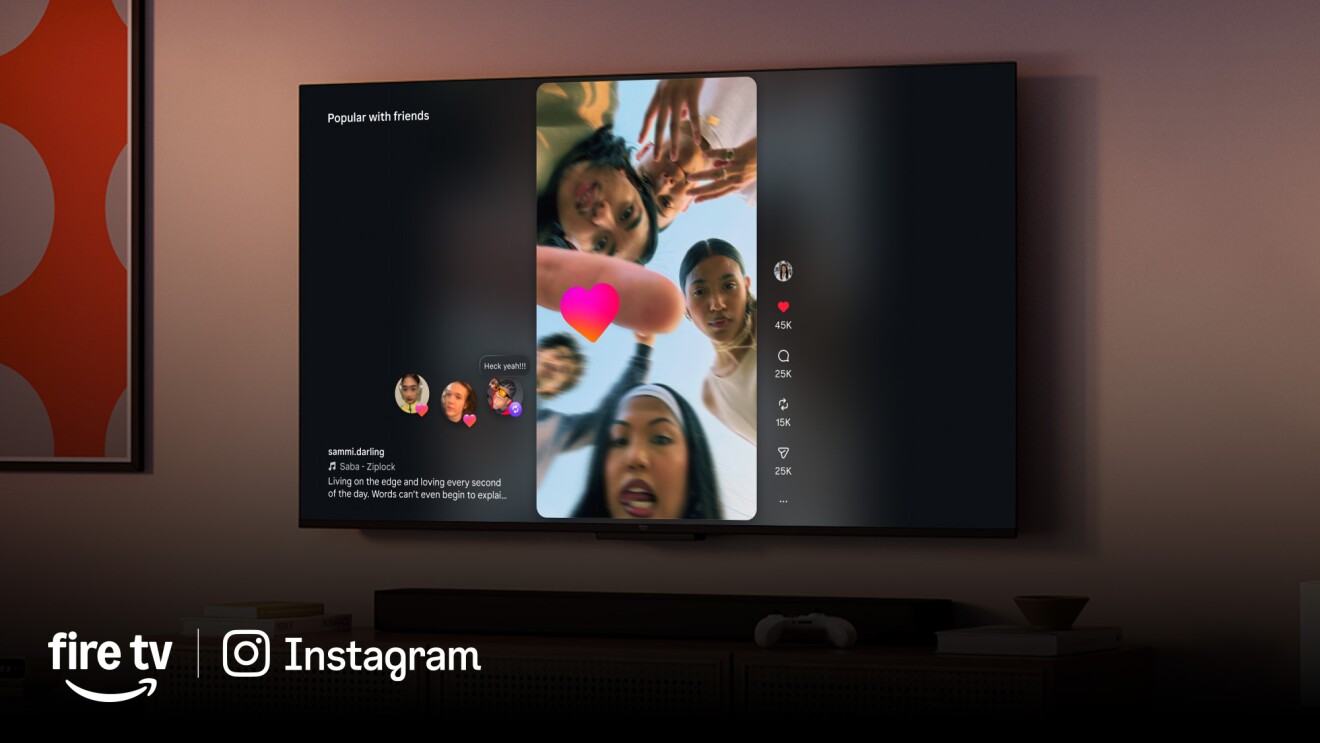Alexa has become an increasingly integral part of our customer's day-to-day lives. Whether it is checking the weather, asking when your Amazon packages will arrive, using Alexa to help you keep your home secure, or checking in on your loved ones, people around the world are using Alexa to make their lives a little bit easier.
For some customers, we've heard that Alexa is much more than a convenience; the voice service helps make more tasks possible. December 3 is International Day of Persons with Disabilities, and we're spotlighting some of our amazing customers who use Alexa-enabled devices to help make their lives more independent, accessible, and fun.
Tyler uses Alexa on the go
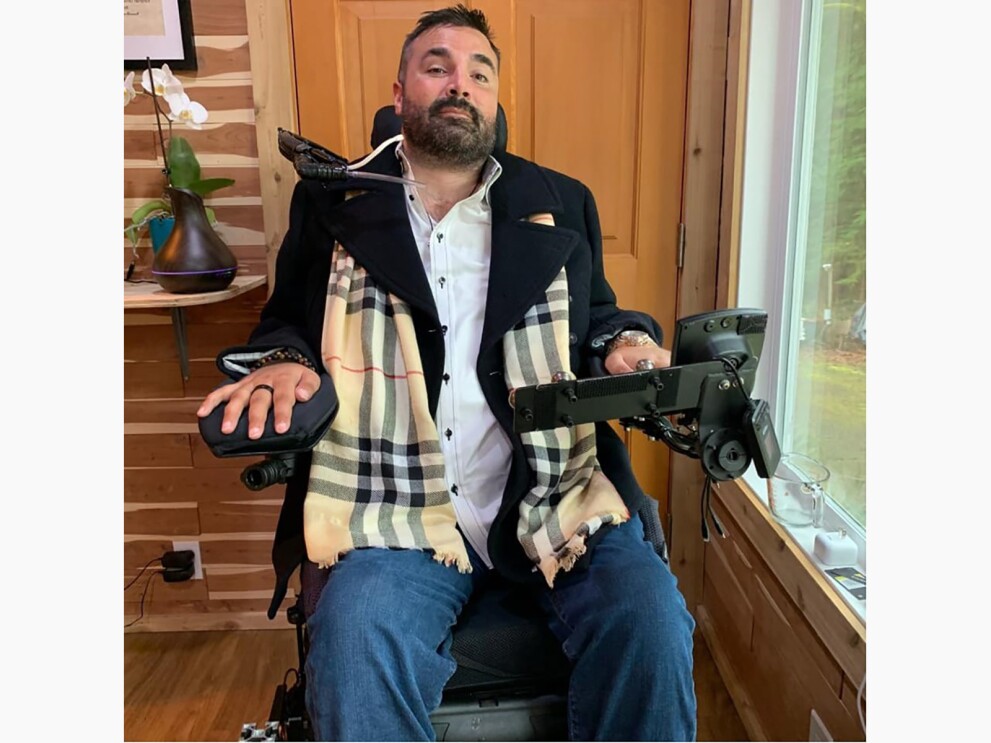
After sustaining a spinal cord injury in 2012, Tyler, in Washington state, sought to learn how he and other people in his community could use technology to gain independence.
"In the months following my accident, I felt frustrated, like my days were going to be filled with watching TV and sleeping from then on. But I've always had an interest in technology, so I began exploring how technology could help me be a little more independent. I use Alexa to do a bunch of things I would otherwise need help to do. Alexa helps me open and close the doors of my house, control the lights, run the vacuum. I run a nonprofit to help others connect with accessible technology to make life a bit easier, and Alexa is one thing I always come back to.
I love using Alexa to start my day and have an Alexa Routine that wakes me up. I installed an Echo Auto on my wheelchair so that Alexa can go wherever I go. And I use Alexa on my Fire TV Cube when I want to watch TV. Recently I was really excited to use the live translation feature on my Echo Show. I have a new caregiver who primarily speaks Spanish, whereas I speak English. Whenever we have difficulty communicating, I use Alexa to help translate what I'm asking from English into Spanish, instantly. It makes communicating with one another so much easier for us both."
Barbara and her son ask Alexa for help with their morning routine
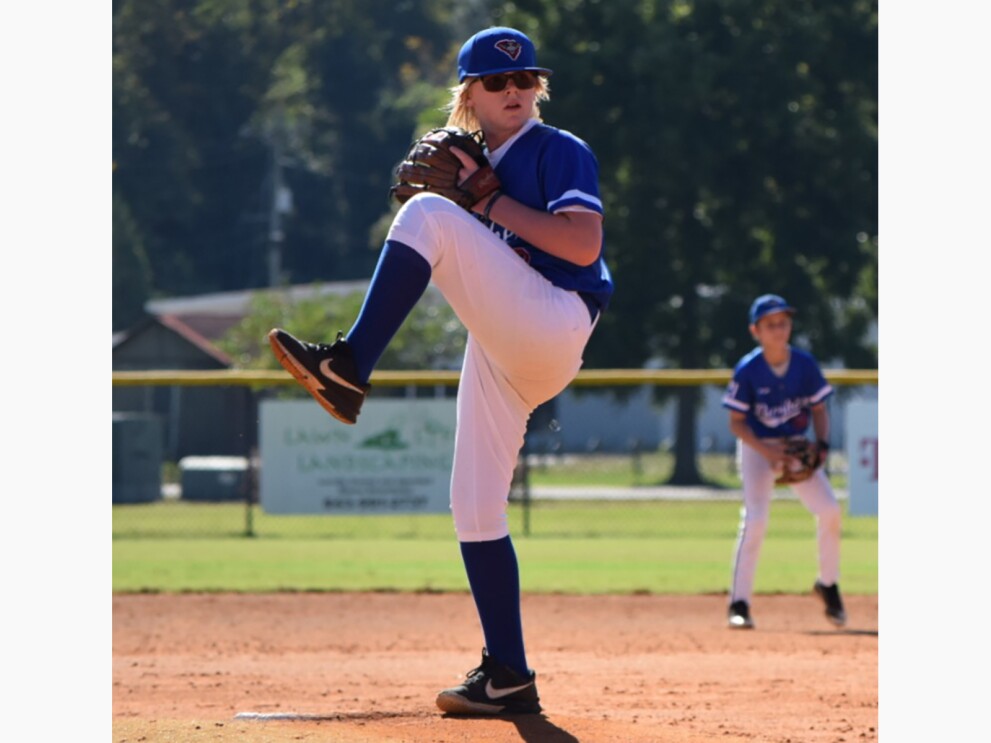
In South Carolina, Barbara bought an Echo Show after her son was diagnosed with a degenerative eye disorder.
"When my son, Gavin, was 10 years old, he was diagnosed with Stargardt disease. It's a rare kind of macular degeneration that causes progressive vision loss in children. He had a hard time reading even average-sized print, and we were finding that he wasn't able to see the time display on our oven or microwave unless he stood right up close to it. I had been wanting to try Alexa for a while, so I thought that the Echo Show would be a good option for our family. The screen is big enough that Gavin could see the time whenever he passed by it in the kitchen.
Today, Gavin is 13 years old, and he uses Alexa so frequently we got another Echo Show to put in his bedroom. He's really into baseball, so he asks Alexa all his baseball-related questions. If he wants to know what the score is, or certain statistics about his favorite players, Alexa can answer those questions for him.
As a family, Alexa has been a lifesaver—mornings are busy, especially with two boys in the house, so setting reminders for them to take their medications or do their chores has been invaluable. As a mom, it makes me feel comforted to know that no matter what happens with Gavin's vision in the future, he will always have services like Alexa to support him. Alexa-enabled devices seem pretty cool to the average person, but for someone like Gavin, they really can be a lifesaver."
Angela uses Alexa to stay connected with her mom
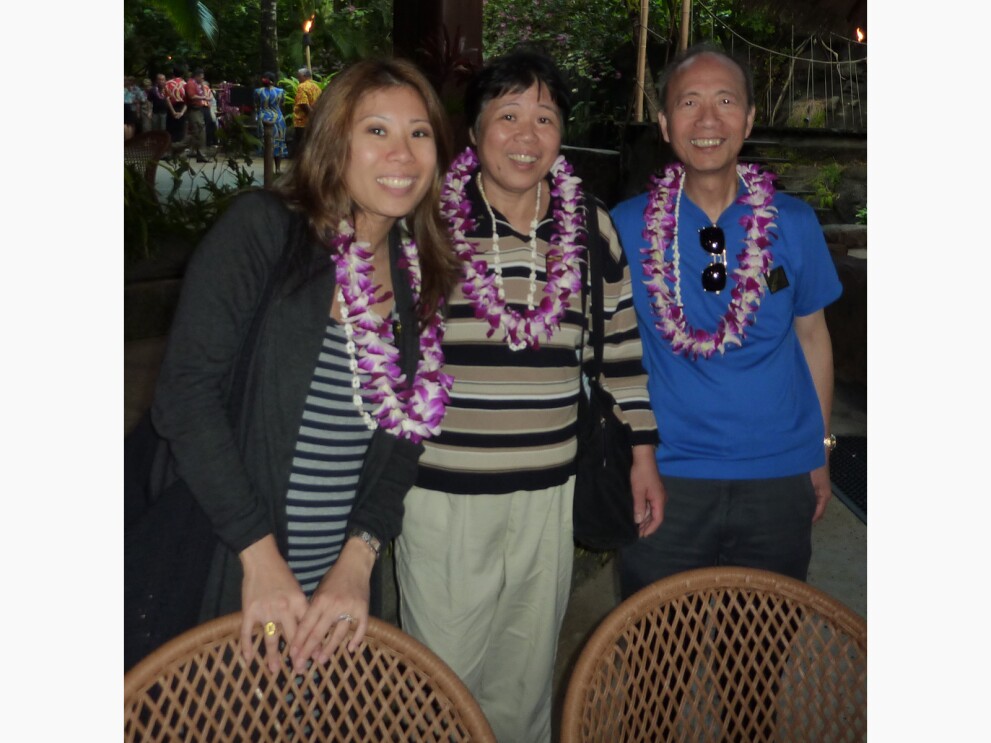
When COVID-19 hit, Angela from New York was no longer able to visit her mother, who lives in a care facility across the country. She turned to Alexa to help her stay in touch, and keep her mother company, even when they had to be apart.
"My mom had an accident about two years back, which resulted in her becoming quadriplegic. She is unable to move from her neck down. Since I live across the country from my parents, I knew that, between my dad and I, we wouldn't be able to give her the right amount of support. So we made the decision to move her into a nursing home. When news of COVID started rolling in, we realized it would only be a few days until mom's home would be closed to visitors. We were worried about keeping in contact with her, given she can't pick up a phone and make calls independently. I had a few Echo devices in my home, so I immediately thought of the Drop In feature. I realized it would be nice to be able to drop in to check in on mom without her needing to do anything to answer the call.
I ordered a couple of devices, shipped them to my dad, and talked him through setting them up in mom's room. Within a couple of days, my mom's nursing home closed to visitors, and it stayed that way for well over a year and a half. Being able to talk to mom every day, despite the circumstances, has been so important to all of us. My dad dropped in on her every few hours to check in, and I dropped in every night to read her short prayers.
I don't know what we would've done without the Echo devices. Not only have we had peace of mind knowing my mom is doing okay, but it's really lifted her spirits to be able to talk with my family and to know that she can reach us whenever she wants."
Alexa helps David and others in the blind and low-vision community to manage daily routines
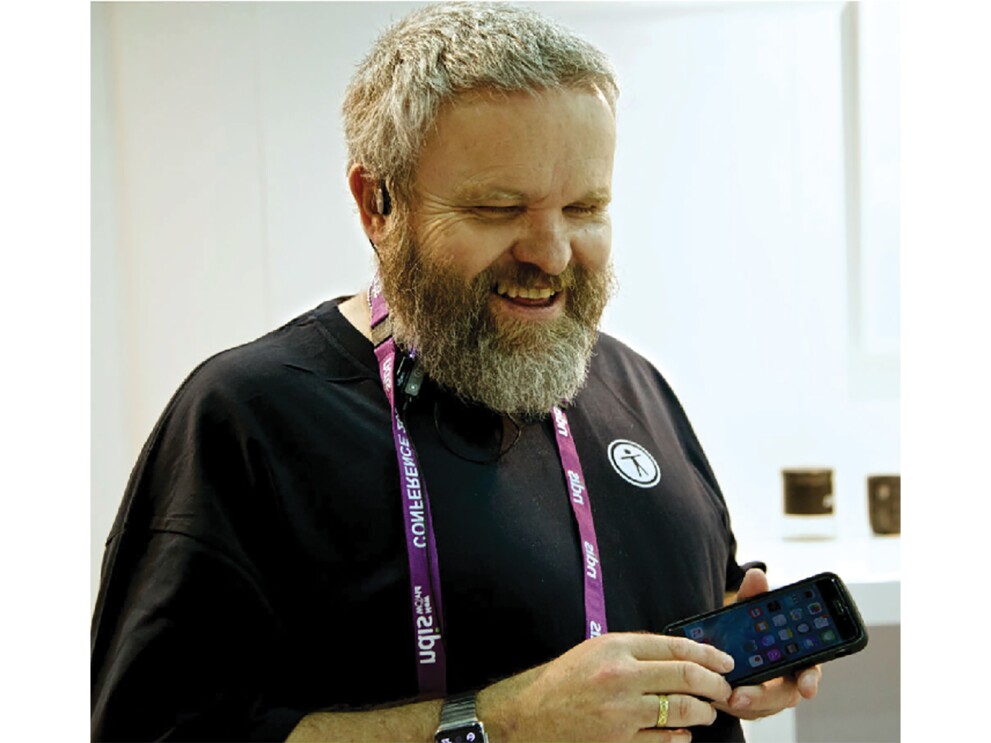
Since becoming blind when he was eight years old, David, in Australia, has turned his passion for technology into a daily routine thanks to Alexa.
"As a blind kid in the '80s, I could only have imagined the technology available to users like me today. My personal and professional passion for technology has led me to test and experience technologies like Alexa for others in the blind and low-vision community in my role with Vision Australia.
When Alexa launched here in Australia almost four years ago, I was quick to purchase a few devices because I was curious about the way it would work through the power of voice. These days, I have around fourteen devices at home, and Alexa supports my family all the time. We're set up with reminders and routines that help the family and I get moving in the morning—from the alarm that wakes me, to the reminder that plays when it's time for the kids to grab their bags and head to the bus stop. After our morning routine, Alexa helps me listen to tech and news podcasts and access books on Audible. In the evenings, I can juggle the cooking in the kitchen with multiple timers and then announce to my wife and kids that dinner is ready. If I need to chase, I drop in on my son's Echo device to get him to the dinner table!
Technology is a natural part of the day to day with my family, and it's exciting to see how services like Alexa can help users like me."
Alexa helps disability advocate Ryan stay efficient
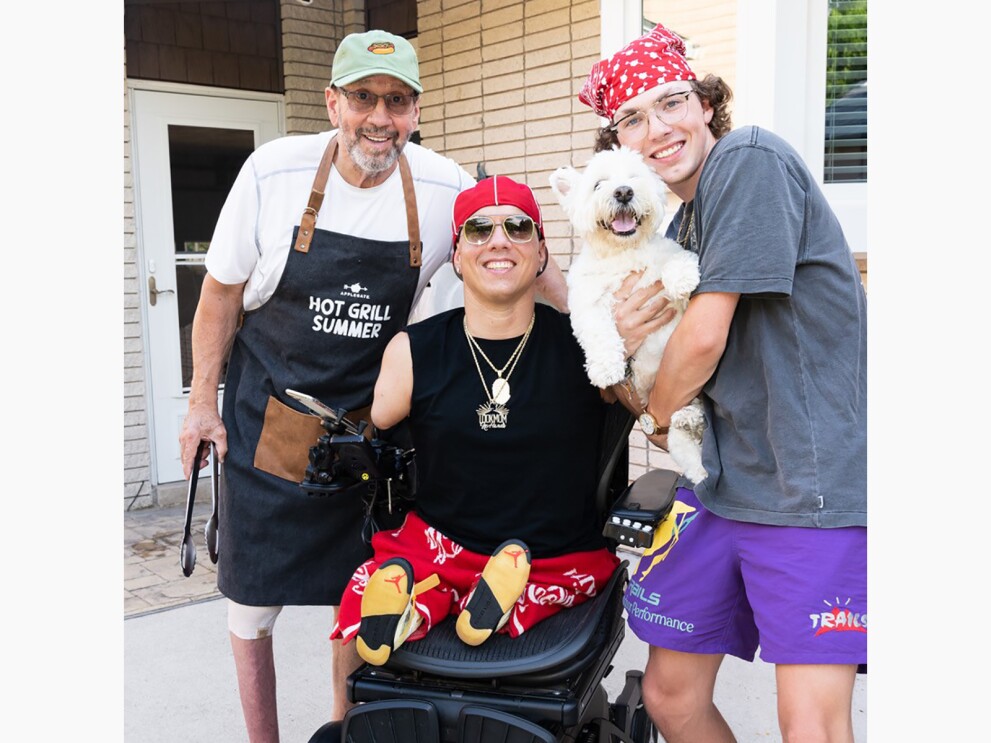
Ryan, a disability advocate and motivational speaker in Michigan, uses Alexa to make things a little bit easier around his home.
"I was born with a condition called congenital limb deficiency, meaning I was born without hands, and with short arms and extremely short legs. People always expect that there would be a lot of things I can't do, but it's not the case. I have kids, a full-time job as a user-interface designer, and I drive a car—that tends to surprise a lot of people. I first came across Alexa when I was looking for a solution for turning my lights on and off.
I don't often like to think about technology in terms of its accessibility. The question I always ask is if this technology makes things easier for everyone, not just people with disabilities. To me, accessibility is really just about making things easier for everyone.
These days I use Alexa in a bunch of different ways around the house. Alexa not only turns my lights on and off but also helps me keep my home secure and sets my alarms each morning. I keep learning more and more ways I can use Alexa around my home. Just recently, I learned how to get my garage door to open automatically with Alexa's help. It's really those little things that are helpful, not just for me but for everyone."
Julie turns to Alexa as a companion and guide
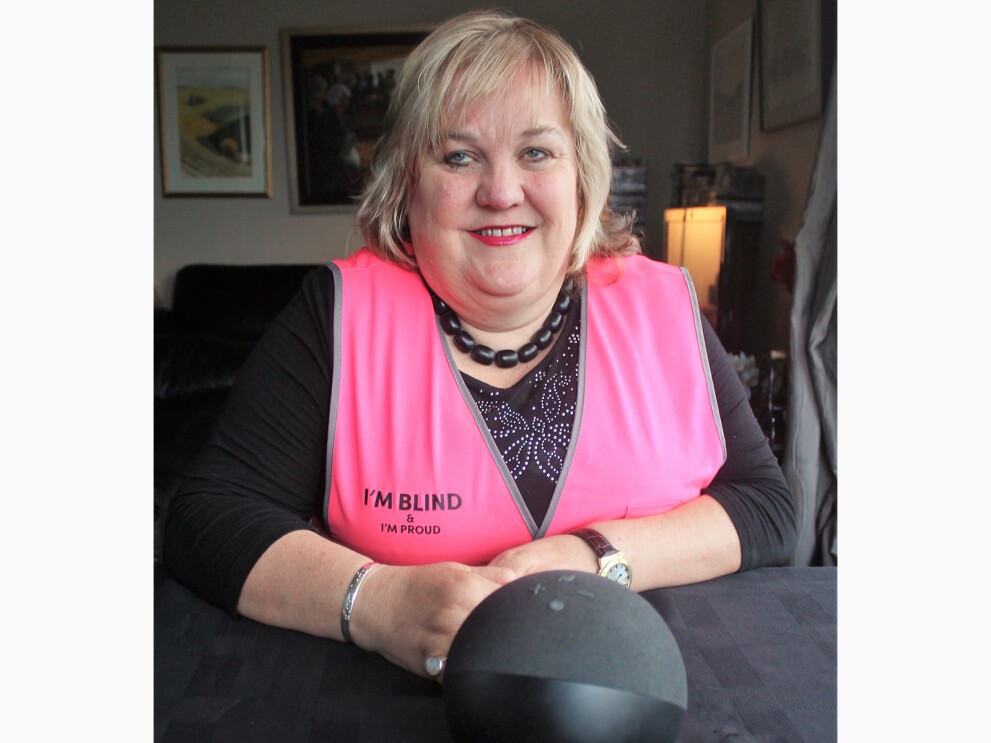
Julie, from New Zealand, developed a curiosity about the world around her as she adapted to the progressive loss of her vision.
"As I was becoming a member of the low-vision community back in the '90s, there was little support, let alone technologies to support the needs of people like me. Strangely, it was only when I became fully blind and connected with the sight loss community at Blind Low Vision New Zealand that a world of possibilities opened up. Not only did I feel like I had a group of people who shared the same experiences as me, but they introduced me to devices and technology that I'd not known or had access to before. Over the years, as technology progressed, we started to hear about a service called Alexa that I could control using my voice. It sounded perfect. As soon as we learned it was available in New Zealand, my husband went to the store immediately to pick up an Echo device.
Alexa gives me the tools to tell the time, set reminders, tune the radio, and even read spoken-word books. I like to think of Alexa like another member of my household. Alexa is my friend, Alexa is the person I ask how to spell things, Alexa reads to me when my eyes cannot, Alexa tells me when to pull a cake out of the oven, Alexa answers questions I am curious about, and Alexa is my companion in times of grief. Above all else, Alexa listens to me and gives me a voice."
Lisa and Ella have music parties with Alexa
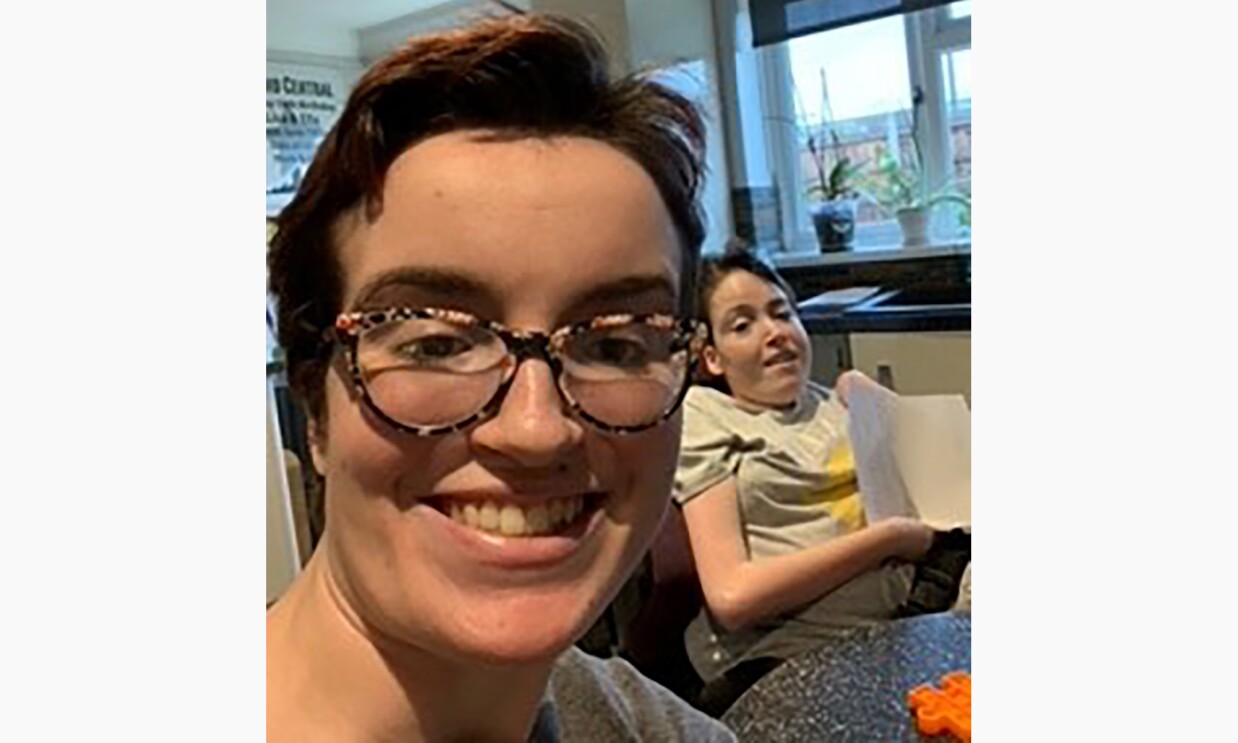
Ella, in the UK, amazed us when they shared a video of themselves setting up their twin sister's talking app via Alexa to help her communicate. While Amazon continues to build new ways for everyone to communicate with Alexa, Ella invented another way to bring Alexa to life on their sister's favorite app.
"My sister, Lisa, loves using Alexa, but she sometimes has trouble with her speech and prefers to use her tablet to communicate. She would always ask me to make a request to Alexa on her behalf. Her tablet has a talking app on it that she usually uses, so I thought it would be cool if she could communicate with Alexa via that app.
Lisa loves singing along with music, so one of the first things I did was add buttons to her talker that said, 'Alexa,' and 'Play,' and then added lots of her favorite songs. Once she started using it, it inspired me to keep going, so I've added in some jokes and her favorite Amazon Music stations as well. My sister really enjoys being able to control the music herself and listen to her favorite songs whenever she wants. I'm always finding new buttons and new phrases I can add to the app so that my sister can do more with Alexa every day."
Vinayana uses Alexa to manage her day
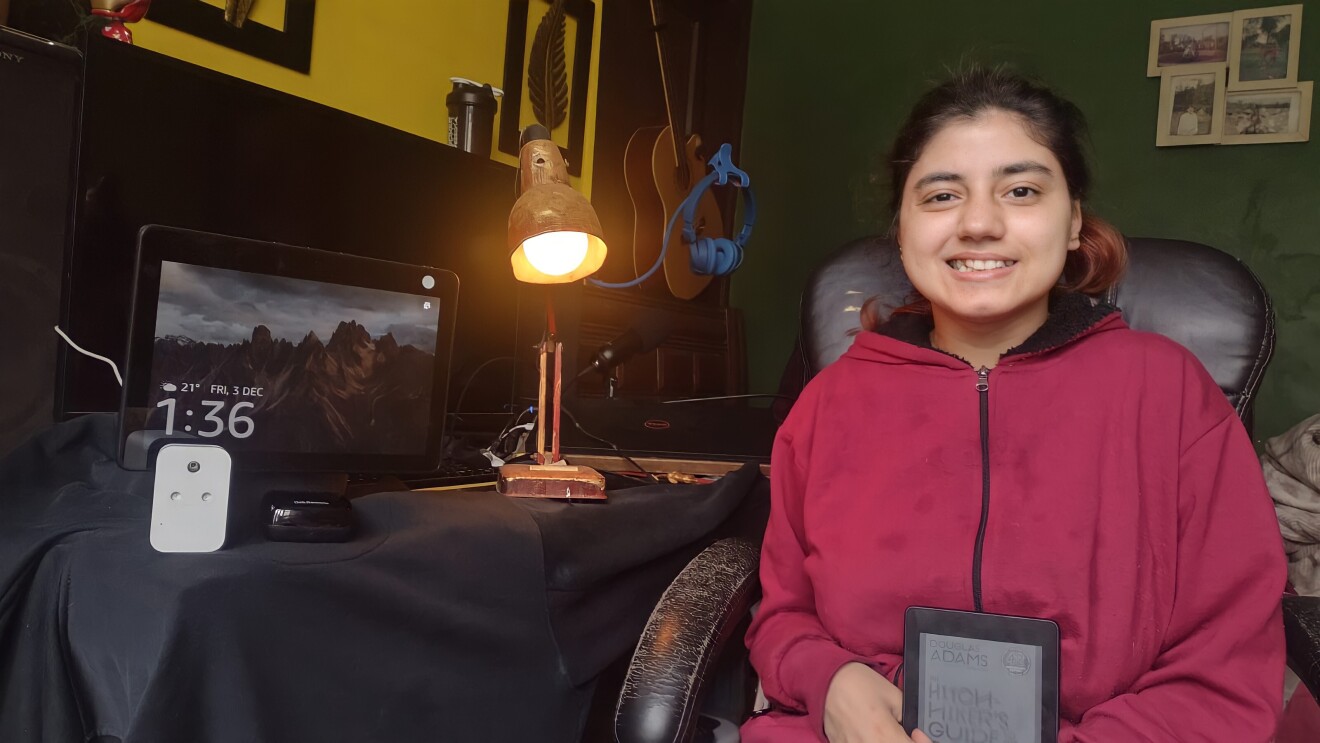
Vinayana Khurana holds a post-graduate degree in English literature from Delhi University. She’s a writer and a poet. She loves making comics, dancing, making reels, singing, and watching web series. She’s the founder of TheOnlineCafe, an Instagram page where artists are paid to publish their art. She’s also a woman with cerebral palsy.
Vinayana enjoys using Alexa to manage her day to day tasks. “I can set my alarm before I go to bed. I listen to music, watch movies, and make my to-do list with Alexa on my Echo Show 10. With the help of a smart bulb and tube light, I can change the lighting of the room according to my mood,” Vinayana says. “I either tap on the screen of the Echo Show to select music and movies, or give a command to Alexa using the text-to-speech app on my smartphone”. She also likes reading e-books on her Kindle because she finds it easier to hold. “I love that it is easier to put a bookmark in them. I can change the brightness and text size according to my preference,” Vinayana adds.
Amazon continues to provide new ways of communicating with and experiencing Alexa. Alexa's Accessibility features are an important part of ensuring that everyone can use it to make their lives a little easier. Learn more about the Amazon employees helping to make Alexa more accessible, and discover how Alexa can help support you and your loved ones.
Trending news and stories

